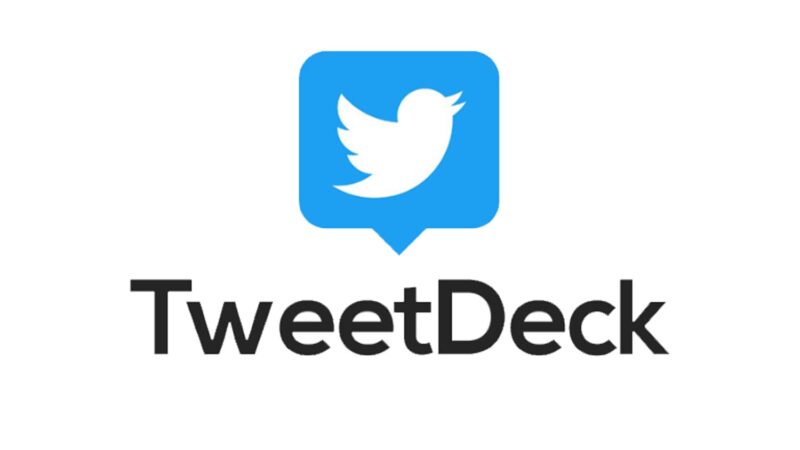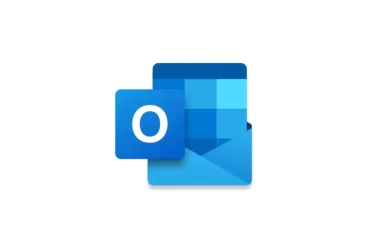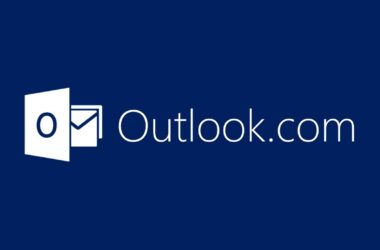In the ever-evolving landscape of social media management, finding the right tools to streamline your Twitter presence is crucial. While TweetDeck has long been a favorite among Twitter enthusiasts, it’s essential to explore the realm of alternatives to meet your evolving needs. In this comprehensive guide, we’ll delve into various TweetDeck alternatives, shedding light on their features, benefits, and what sets them apart. We’ll also discuss the factors to consider when choosing the perfect TweetDeck alternative to elevate your Twitter game.
TweetDeck: A Brief Overview
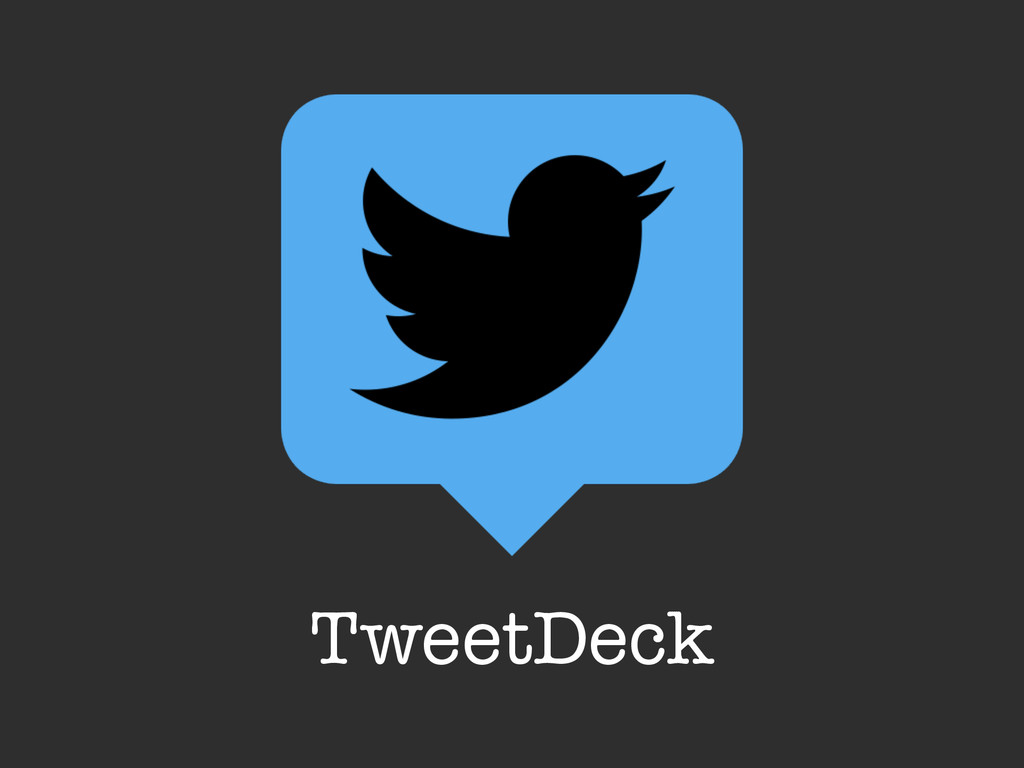
Before we dive into the TweetDeck alternatives, let’s take a moment to understand what TweetDeck brings to the table.
Features of TweetDeck
TweetDeck’s feature set is what has made it a beloved tool for Twitter aficionados. One of its standout features is real-time monitoring. With TweetDeck, you can keep a finger on the pulse of Twitter, tracking mentions, hashtags, and conversations as they happen. It’s like having your own social media command center.
Another compelling feature of TweetDeck is its ability to create multiple columns. This customization allows you to organize and prioritize your Twitter feeds, notifications, and lists as per your preferences. Whether you’re managing personal and business accounts or monitoring specific keywords, this feature lets you stay organized with ease.
Furthermore, TweetDeck offers tweet scheduling, a boon for those looking to maintain a consistent Twitter presence. By scheduling tweets in advance, you ensure your content reaches your audience at optimal times for engagement. This feature is particularly valuable for businesses and social media managers juggling multiple responsibilities.
TweetDeck also simplifies user management. For businesses and teams, managing multiple Twitter accounts is a breeze with this tool. You can access and oversee various accounts from a single dashboard, streamlining your social media operations.
Customizable alerts round out TweetDeck’s impressive feature list. You can tailor notifications to your specific needs, ensuring you never miss an important tweet or mention. It’s all about staying informed and responsive.
Limitations of TweetDeck
While TweetDeck has much to offer, it’s not without its limitations. Firstly, it primarily focuses on Twitter. If your social media strategy involves managing multiple platforms, you’ll find TweetDeck lacking in this regard. To cover other social networks, you’ll need additional tools in your arsenal.
Additionally, TweetDeck provides basic engagement metrics but lacks the in-depth analytics needed for a comprehensive social media strategy. If you require detailed insights into your Twitter performance, you may need to supplement TweetDeck with analytics tools.
Lastly, as of its last update, TweetDeck did not offer a mobile app. In an era where on-the-go management is essential, this omission could be a drawback for those who prefer to manage their Twitter accounts via mobile devices.
Why Look For A TweetDeck Alternative?

Exploring TweetDeck alternative tools for managing your Twitter presence is a strategic decision, and there are several compelling reasons to consider making the switch. Here, we’ll delve into the key factors driving the search for a TweetDeck alternative.
1. Diverse Social Media Management Needs
As your social media strategy evolves, you may find yourself needing to manage multiple platforms beyond Twitter. TweetDeck is primarily Twitter-focused, and if your strategy involves platforms like Facebook, Instagram, LinkedIn, or others, you’ll need a tool that offers multi-platform support.
2. Advanced Analytics and Insights
While TweetDeck provides basic engagement metrics, you may require more in-depth analytics to refine your social media strategy. Advanced tools offer detailed insights into audience demographics, post-performance, and engagement trends, enabling data-driven decision-making.
3. Enhanced Team Collaboration
As your social media efforts grow, you might collaborate with a team of content creators, editors, and social media managers. Effective collaboration tools become essential to streamline content approval workflows, assign tasks, and maintain a cohesive brand presence.
4. Mobile Accessibility
In today’s fast-paced world, mobile accessibility is crucial. If you need the flexibility to manage your Twitter accounts on the go, a tool with a mobile app can be a game-changer. TweetDeck, at the time of its last update, didn’t offer a mobile app, which could be a limitation for those who value mobile management.
By considering these factors, you’ll be better equipped to evaluate TweetDeck alternatives that align with your evolving social media management needs and goals.
Commonly Used TweetDeck Alternatives

Now that we’ve explored TweetDeck’s features and limitations, let’s turn our attention to some of the most notable TweetDeck alternatives, each catering to specific needs and preferences.
1. Hootsuite: The Social Media Powerhouse
Hootsuite stands tall as a social media powerhouse, providing a versatile solution for managing not only Twitter but also a plethora of other social platforms. With features like post-scheduling, content curation, and in-depth analytics, Hootsuite is a favorite among businesses and marketers seeking a comprehensive social media management tool.
Hootsuite’s strength lies in its ability to centralize social media management across various platforms. It offers a unified dashboard where you can schedule posts, track engagement, and even collaborate with team members. This all-in-one approach simplifies the often complex world of social media marketing.
2. Buffer: Simple and Effective
Buffer, known for its simplicity and effectiveness, offers an intuitive platform for scheduling tweets and posts across various social networks, including Twitter. Its user-friendly interface is a hit among small businesses and individuals looking to maintain a consistent social media presence without the complexity of a more robust tool.
Buffer’s core functionality revolves around post-scheduling, making it a go-to choice for those who prioritize efficient content distribution. The ability to queue up posts and tailor them for specific times ensures that your Twitter feed remains active and engaging, even when you’re not online.
3. Sprout Social: Comprehensive Social Media Management
Sprout Social is your go-to solution for those seeking comprehensive social media management, including Twitter. Its robust suite of features encompasses everything from content scheduling and analytics to social listening and engagement tracking. Businesses aiming for a robust online presence will find Sprout Social to be a game-changer.
One of Sprout Social’s standout features is its analytics and reporting capabilities. It provides in-depth insights into your Twitter performance, helping you make data-driven decisions. The platform’s social listening tools also enable you to monitor conversations and trends, allowing for timely and relevant engagement with your audience.
4. SocialBee: Content Categorization and Scheduling
SocialBee stands out in the crowd with its unique content categorization and scheduling features. If you’re meticulous about organizing your social media calendar and ensuring a steady stream of relevant content on Twitter, SocialBee might be your perfect match.
SocialBee’s content categorization feature lets you tag and categorize your content for precise scheduling. This level of organization ensures that your tweets are not only consistent but also strategically aligned with your goals. Additionally, SocialBee offers evergreen content recycling, allowing you to get the most out of your best-performing tweets.
5. Agorapulse: Simplified Social Engagement
Agorapulse streamlines social media engagement and reporting, making it a top choice for businesses and agencies. With its unified inbox feature, you can efficiently manage interactions across platforms, including Twitter, ensuring you never miss an important conversation.
The standout feature of Agorapulse is its unified inbox, which consolidates all your social media interactions in one place. This means you can respond to comments, mentions, and direct messages from Twitter and other platforms without constantly switching between tabs. This streamlined communication process saves time and ensures that you’re always responsive to your audience.
6. Tweeten: The Open-Source Gem
Tweeten, an open-source gem, closely mimics the TweetDeck experience. This customizable dashboard offers support for multiple Twitter accounts, making it a preferred choice for those who crave the familiar TweetDeck interface while enjoying a few additional features.
One of the key selling points of Tweeten is its open-source nature. This means that developers and users alike can contribute to its improvement, resulting in a continually evolving and customizable platform. Tweeten’s support for multiple Twitter accounts and customizable columns provides users with a personalized Twitter experience.
7. Later: Visual Content Scheduling
While primarily designed for Instagram, Later also extends its support to Twitter scheduling. Its visual content calendar simplifies the planning and scheduling of tweets, making it a valuable asset for content creators and marketers.
Later’s strength lies in its visual content calendar, which allows users to plan and schedule their Twitter posts with ease. This feature is particularly useful for content creators and businesses that rely on visual content to engage their audience. Whether it’s images, videos, or infographics, Later ensures that your visual content is delivered to your Twitter followers at the right times.
8. SocialOomph: Automation and Queueing
SocialOomph excels in tweet automation and queueing, allowing users to maintain a consistent Twitter presence without the hassle of constant manual posting. It’s a time-saving solution for those who want to keep their Twitter feeds active and engaging.
SocialOomph’s automation features make it a standout choice for individuals and businesses looking to maintain a regular posting schedule on Twitter. With its queueing system, you can create a backlog of tweets that SocialOomph will automatically publish at specified intervals. This “set it and forget it” approach ensures that your Twitter feed remains active even during your downtime.
9. Zoho Social: Part of a Comprehensive Suite
Zoho Social is part of the Zoho suite of business applications, offering Twitter management alongside other social media features. If you’re already using other Zoho tools, this integrated solution can streamline your social media workflow.
Zoho Social’s strength lies in its integration with the larger Zoho suite of business applications. If your organization relies on Zoho for customer relationship management (CRM) or other business functions, Zoho Social seamlessly integrates with these tools. This integration simplifies the process of tracking and engaging with your Twitter audience in the context of your broader business operations.
Factors To Consider While Choosing The Perfect TweetDeck Alternative
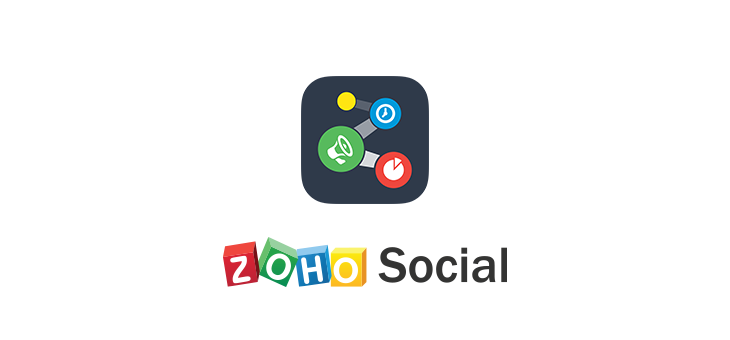
As you embark on your quest for the ideal TweetDeck alternative, consider these essential factors:
1. Your Specific Needs and Objectives
Before diving into the world of TweetDeck alternatives, take a moment to define your specific needs and objectives. Consider the following questions:
- Number of Social Platforms: Do you manage multiple social media platforms besides Twitter? Some TweetDeck alternatives offer integration with various networks, while others are Twitter-centric.
- Analytics Requirements: What level of analytics do you need? Are you looking for detailed performance insights, or are basic metrics sufficient?
- Team Size: How large is your social media team? Some tools offer collaboration features, which can be crucial for team coordination.
Understanding your unique requirements is the first step toward finding the perfect fit for your Twitter management needs.
2. Budget and Pricing Plans
Budget constraints play a significant role in your choice of a TweetDeck alternative. Evaluate the pricing plans offered by each tool and consider the following:
- Free Trials: Many TweetDeck alternatives offer free trials or freemium versions. Take advantage of these options to test the waters before committing.
- Scalability: Think about how your costs may change as your social media management needs evolve. Ensure the tool you choose is scalable to accommodate your growth.
3. User-Friendliness and Learning Curve
The ease of use and the learning curve associated with each TweetDeck alternative can significantly impact your efficiency. Consider the following:
- Intuitive Interface: Is the platform’s user interface intuitive and easy to navigate? A user-friendly design can save you valuable time.
- Training and Support: Does the tool offer training resources or customer support to help you and your team get up to speed?
4. Features and Integration with Other Tools
Assess the features offered by each TweetDeck alternative and their compatibility with your existing tools and workflow:
- Scheduling Capabilities: Examine the scheduling features. Do they align with your content distribution strategy?
- Analytics and Reporting: Investigate the depth of analytics provided. Does it meet your data-driven decision-making needs?
- Team Collaboration: If you work with a team, check if the tool offers collaboration features such as content approval workflows.
- Integration: Ensure the tool can seamlessly integrate with other software or platforms you use, such as CRM systems or marketing automation tools.
5. Customer Support and Assistance
Finally, consider the level of customer support provided by each TweetDeck alternative:
- Response Time: How quickly can you expect a response when you encounter issues or have questions?
- Knowledge Base: Does the provider offer a comprehensive knowledge base or help center with resources to assist you?
- Community and User Forums: Sometimes, fellow users can provide valuable insights and solutions.
By factoring in these considerations, you’ll be well-equipped to choose the perfect TweetDeck alternative that aligns with your goals and enhances your Twitter management efforts.
Conclusion
In the ever-evolving realm of social media, finding the perfect TweetDeck alternative is essential for efficient Twitter management. While TweetDeck itself boasts remarkable features, exploring the variety of TweetDeck alternatives allows you to tailor your social media strategy to your specific needs and objectives.
Whether you prioritize in-depth analytics, user-friendliness, or multi-platform support, there’s a Twitter management tool out there that’s the perfect fit for you. Elevate your Twitter game with the ideal TweetDeck alternative that aligns with your goals, and watch your social media presence soar to new heights.




